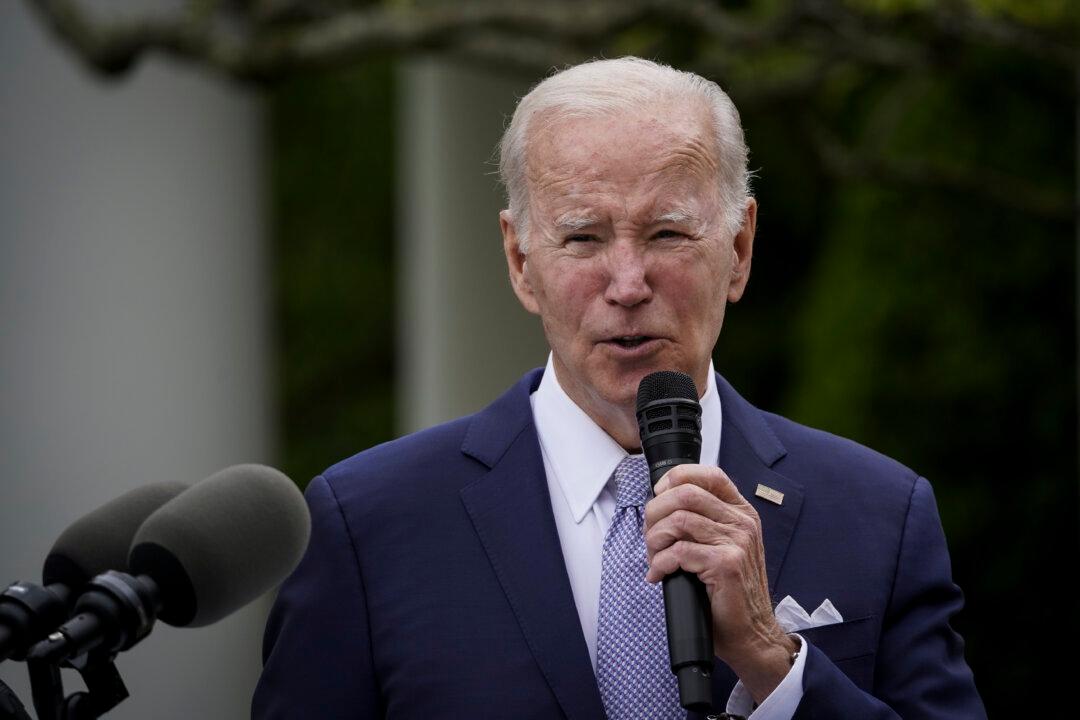President Joe Biden would veto legislation that’s aimed at improving border security if a House Republican-led measure is approved by Congress, the White House said on May 8.
The Secure the Border Act of 2023, or H.R.2, would require construction on the U.S.–Mexico border wall to resume, impose a minimum level of U.S. Border Patrol agents, and require a plan to enhance border security.





